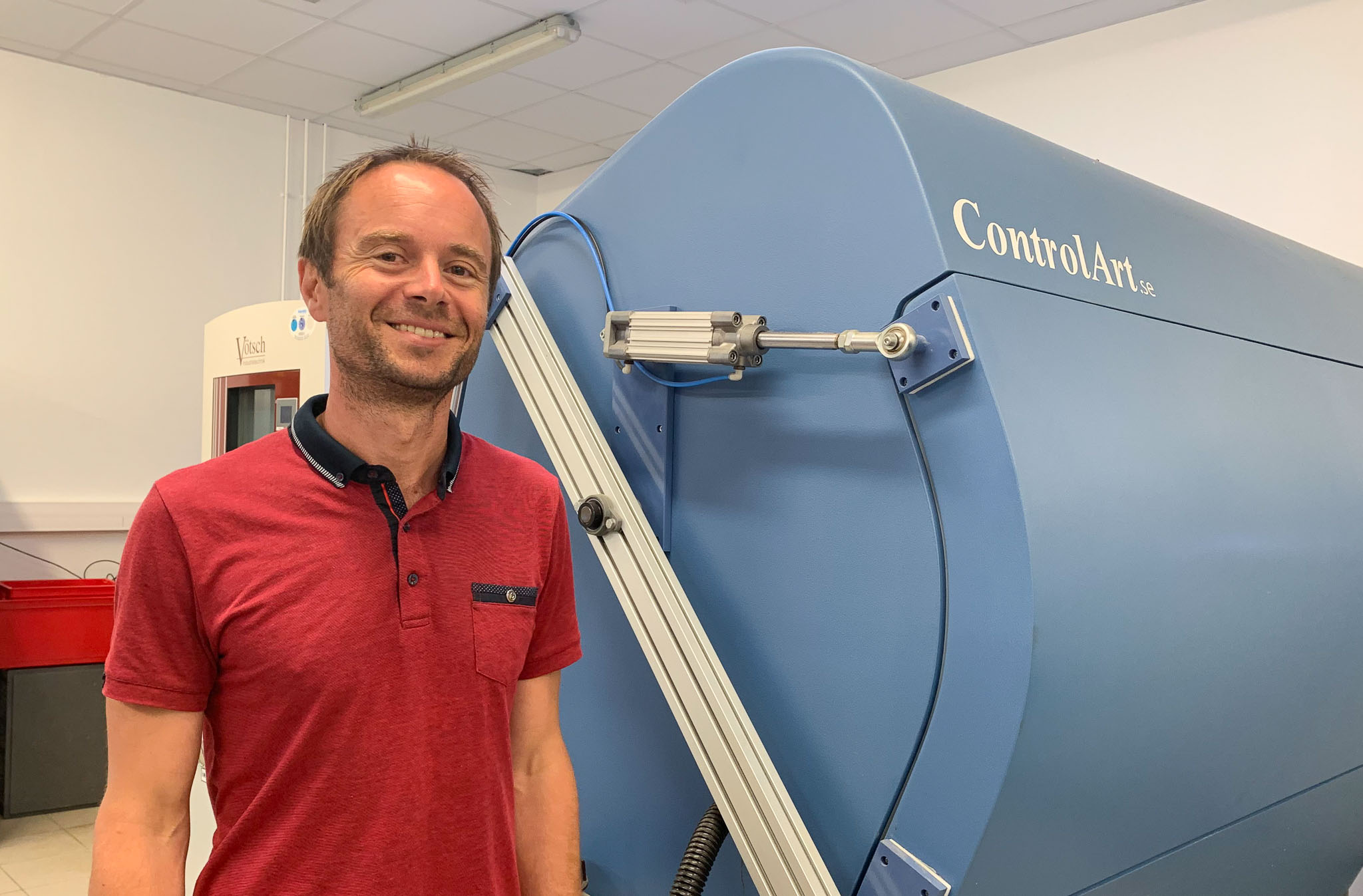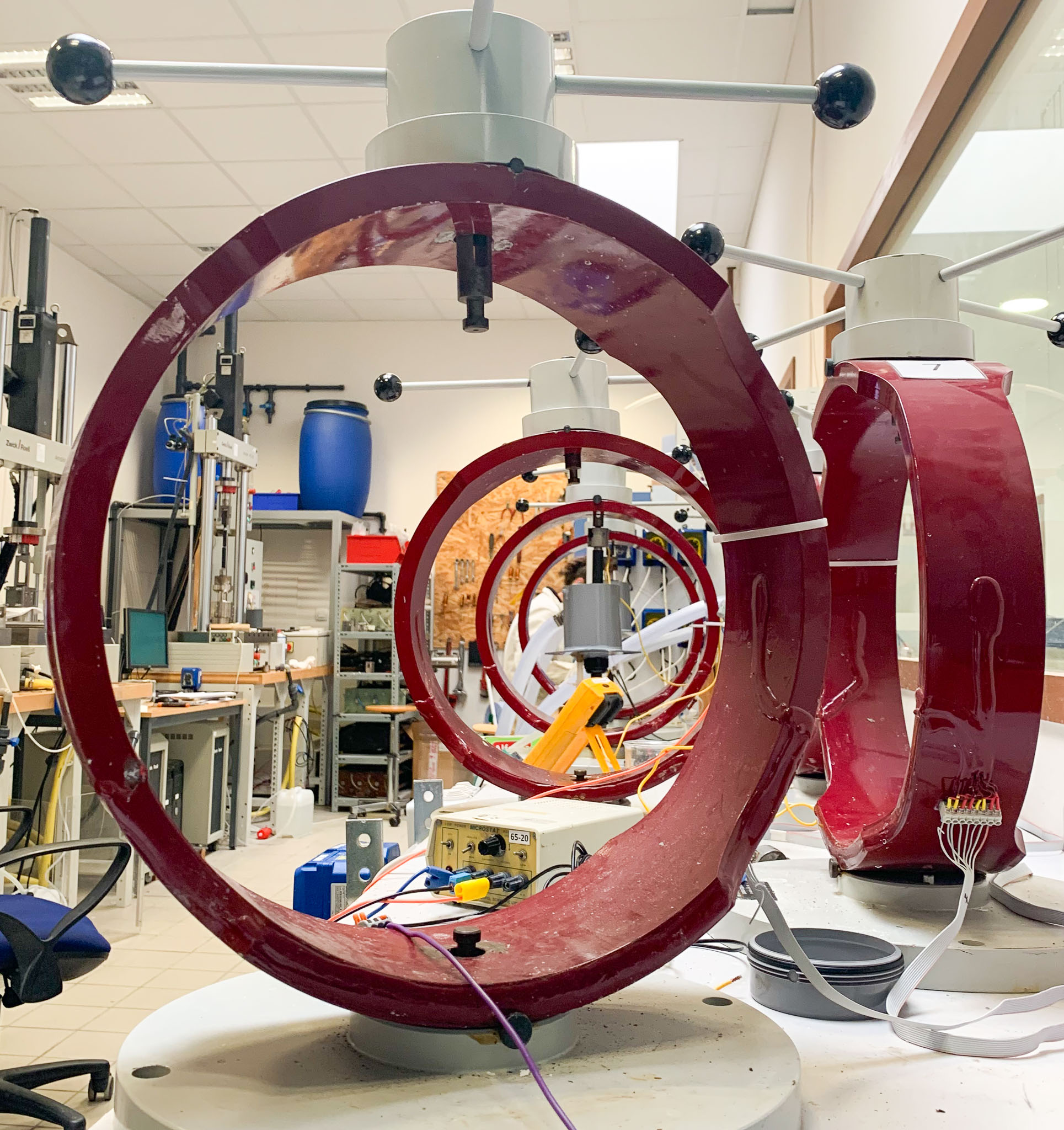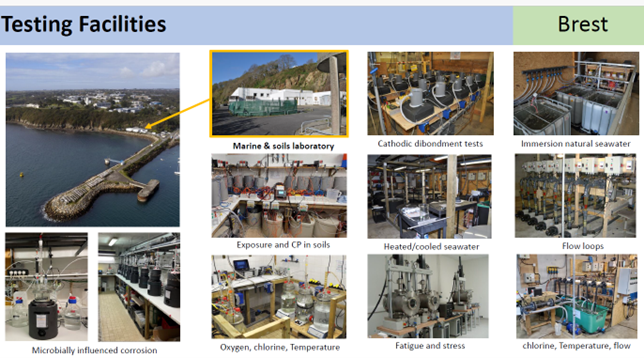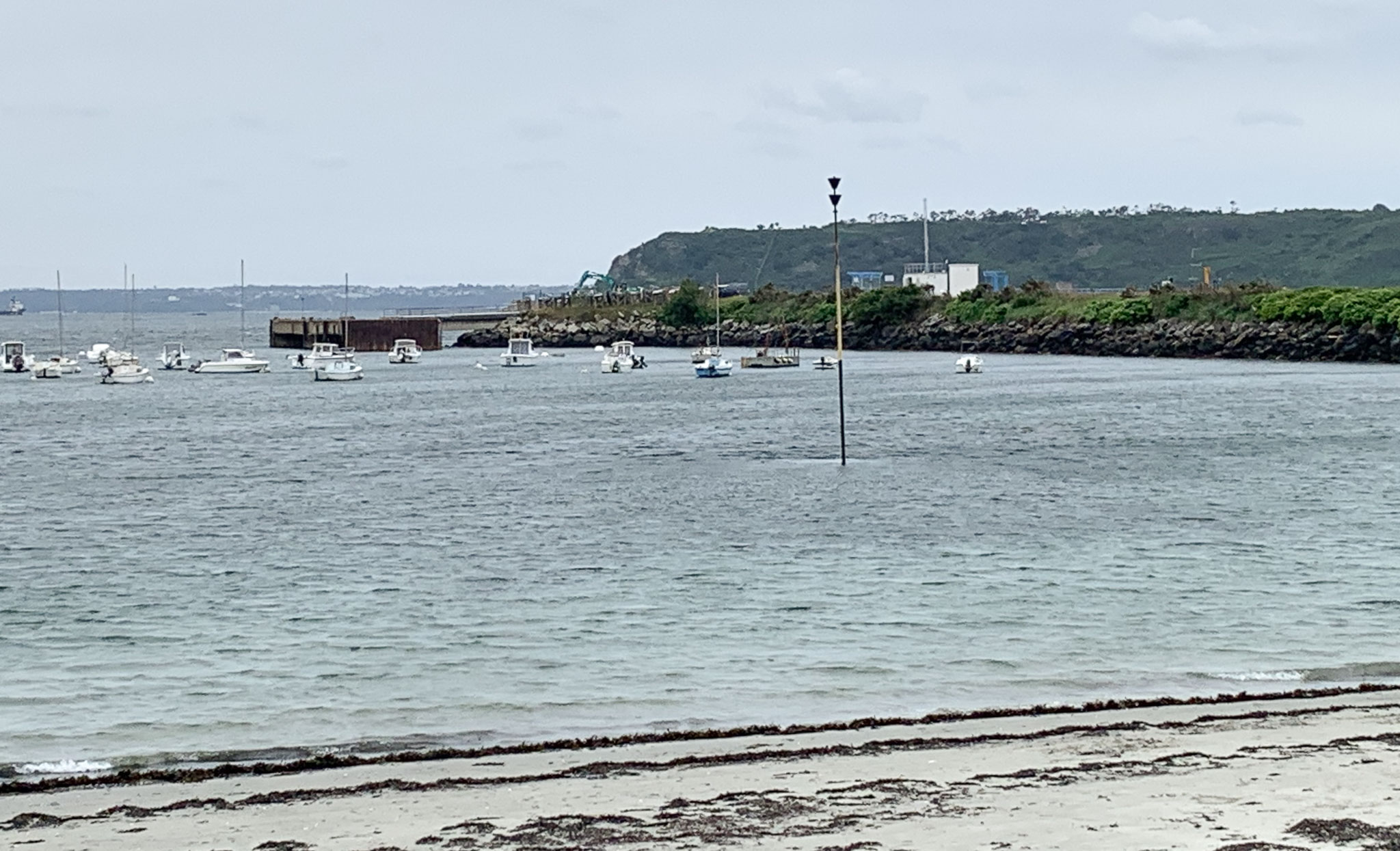The Institute of Corrosion: New Member of the Campus mondial de la mer
- Studying corrosion mechanisms and developing solutions to protect materials: this is the expertise of the Institute of Corrosion. Situated on a promontory overlooking the Brest harbour, this private research centre is inherently oriented towards international collaboration. Nicolas Larché, the director of the Brest site since 2021, welcomes us as neighbours for a presentation of its activities, followed by a tour of the facilities.

Nicolas Larché, director of the Brest site, Intitute of Corrosion
Credit: Technopôle Brest-IroiseAn Institute with an International Reach
RISE (Research Institutes of Sweden) employs over 3,000 researchers and specialists in industrial innovation. This multidisciplinary Swedish institute has a corrosion and materials department comprising around 60 employees: RISE Corrosion.
The Institute of Corrosion, a subsidiary of RISE Corrosion, operates on a non-profit basis. Profits are reinvested into equipment and human resources across its three sites: Brest (35 employees), Lyon (5), and Saint-Étienne (18), with an annual budget of 7 to 8 million euros (90% from industrial contracts and 10% from public research funding).
The Institute of Corrosion’s international expansion also relies on dozens of testing sites worldwide. These sites enable "the natural exposure of materials, either in various atmospheres (atmospheric field sites) or in seawater of different corrosivities (seawater field exposure)," explains Nicolas.
The research centre’s activities extend beyond borders through collaborations with marine stations and industrial contracts. "In Brazil, we are currently studying the effects of marine microbiology on corrosion at a depth of 2,000 metres," Nicolas illustrates. Another flagship corrosion monitoring project is being conducted with the Venice Port Authority and the MOSE system operator, the barrier that protects the famous lagoon from 'Acqua Alta.'
A Multi-Technique Approach
The Institute’s areas of application are vast: transport, construction, offshore and onshore structures, chemical industry, energy, defence, and more. The deterioration of materials is a common challenge across many sectors. The Institute explores new alloys and tests their limits. On-site, it assesses damage, advises on material selection, and determines the best systems for corrosion protection.

The Institut of Corrosion Lab. Credit: Technopôle Brest-Iroise In Brest, the infrastructure and expertise are primarily focused on the maritime sector and accelerated testing. The Saint-Anne mole, managed by Ifremer, enables outdoor marine exposure tests, while the local laboratory has tanks for testing under controlled conditions. Collaboration with the Céladon association also allows for testing in the Brest harbour (Sea Test Base). Additionally, laboratory equipment such as climatic chambers and tensile and fatigue machines enhance analytical capabilities. The Institute has a wide range of analytical tools (including electron microscopy, Raman spectroscopy, and Kelvin probe) and also has access to those at the University of Western Brittany (UBO). Significant investments have been made at the Saint-Étienne site to facilitate studies on hydrogen.

Crédit : Institut de la corrosion New Installation in 2024: A Giant Climatic Chamber Unique in Europe
In 2024, the Institute of Corrosion will inaugurate a giant 12 m³ climatic chamber (walk-in chamber), a unique installation in Europe within an independent laboratory.
Ongoing Maritime Projects
Nicolas Larché, who joined the Institute in 2006 as a research engineer, has played a key role in developing the Institute's expertise in marine corrosion and cathodic protection.
Since taking over as director of the Brest site in 2021, several maritime projects are underway.
Corrosion of Marine Renewable Energy Structures
Offshore wind, photovoltaic, tidal turbines—all marine renewable energies (MREs) are affected by corrosion. The offshore environment also encourages the development of co-activities, such as seaweed farming. The SeaChem project (EU project, MSCA Marie Curie doctoral school) aims to assess the impact of the environment on MRE structures and the effect of these structures on ecosystems, such as seaweed. "Seaweed can also serve as environmental sentinels," Nicolas notes. "The first tests are being conducted at Saint-Anne, but the goal is to extend experimentation to MRE farms in Belgium, the North Sea, and, if possible, in Brittany."
Please Note: A workshop on this topic will be held during Sea Tech Week®, entitled "Offshore seaweed cultivation an emerging industry: structural durability and biosafety issues" (15 Oct. 2024, Brest) [More information].

The Saint-Anne mole, Brest. Credit: Technopôle Brest-Iroise Two other European projects are underway in the offshore domain:
The HELIX project aims to evaluate the behavior and durability of XXL-sized bolting for future offshore wind turbines. The other project, recently awarded and starting this year, is the DURALINK project, which focuses on the fatigue sizing of two structural elements of offshore platforms to ensure their integrity in service: metal anchor chains and welded joints. This project will, among other things, be conducted in collaboration with ENSTA Bretagne, showcasing a prime example of the potential synergy between our Breton laboratories.
Monitoring and AI
The Institute of Corrosion offers solutions to assess the real-time corrosion of structures using sensors it develops. For the past two years, it has been enhancing their use with artificial intelligence to provide more accurate predictions.
Recruitment and Training
- The Institute is continually recruiting researchers, technicians, and interns in physical and chemical measurements. Contact them for more information.
-
The Institute is also a training centre for cathodic protection. Explore their training offerings.
- En savoir Plus
- Published on 08/22/2024


